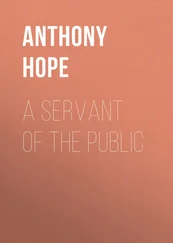Anthony Hope - Mrs. Maxon Protests
Здесь есть возможность читать онлайн «Anthony Hope - Mrs. Maxon Protests» — ознакомительный отрывок электронной книги совершенно бесплатно, а после прочтения отрывка купить полную версию. В некоторых случаях можно слушать аудио, скачать через торрент в формате fb2 и присутствует краткое содержание. Жанр: foreign_prose, на английском языке. Описание произведения, (предисловие) а так же отзывы посетителей доступны на портале библиотеки ЛибКат.
- Название:Mrs. Maxon Protests
- Автор:
- Жанр:
- Год:неизвестен
- ISBN:нет данных
- Рейтинг книги:3 / 5. Голосов: 1
-
Избранное:Добавить в избранное
- Отзывы:
-
Ваша оценка:
- 60
- 1
- 2
- 3
- 4
- 5
Mrs. Maxon Protests: краткое содержание, описание и аннотация
Предлагаем к чтению аннотацию, описание, краткое содержание или предисловие (зависит от того, что написал сам автор книги «Mrs. Maxon Protests»). Если вы не нашли необходимую информацию о книге — напишите в комментариях, мы постараемся отыскать её.
Mrs. Maxon Protests — читать онлайн ознакомительный отрывок
Ниже представлен текст книги, разбитый по страницам. Система сохранения места последней прочитанной страницы, позволяет с удобством читать онлайн бесплатно книгу «Mrs. Maxon Protests», без необходимости каждый раз заново искать на чём Вы остановились. Поставьте закладку, и сможете в любой момент перейти на страницу, на которой закончили чтение.
Интервал:
Закладка:
"Cyril, I'm never coming back."
For a full minute he sat silent, looking steadily at her. Incapable as he was of appreciating how she had arrived at, or been driven to, this monstrous decision, yet he had perception enough and experience enough to see that she was sincere in it and set on it; and he knew that she could give effect to it if she chose. In that minute's silence he fought hard with himself; he had a mighty temptation to scold, a still mightier to flout and jeer, to bring his heavy artillery of sarcasm to bear. He resisted and triumphed.
He looked at the clock. It was a quarter-past twelve.
"You'll hardly expect me to deal with such a very important matter at this hour of the night, and without full consideration," he said. "You must know that such separations are contrary to my views, and I hope you know that, in spite of the friction which has arisen, I have still a strong affection for you."
"I shan't change my mind, Cyril. I shan't come back."
He kept the curb on himself. "I really would rather not discuss it without more consideration, Winnie – and I think I have a right to ask you to give it a little more, and to hear what I have to say after reflection. Is that unfair? At least you'll admit it's a serious step?"
"I suppose it's fair," she murmured impatiently. She would have given the world to be able to call it grossly unfair. "But it's no use," she added, almost fierce in her rejection of the idea that her determination might weaken.
"Let us both think and pray," he said gravely. "This visit of yours to the Aikenheads' may be a good thing. It'll give you time to reflect, and there'll be no passing causes of irritation to affect your calmer judgment. Let us treat it as settled that you stay with them for a fortnight – but treat nothing else as settled to-night. One thing more – have you told anybody about this idea?"
"Only Hobart Gaynor. I went and asked him whether I could do it if I wanted to. I told him I meant to do it."
"He'll hold his tongue. Mention it to nobody else, please."
"I won't till – till it's settled." She smiled. "We've actually agreed on one or two things! That's very unusual in our wrangles, Cyril."
He came up to her and kissed her on the forehead. "For God's sake, think! You don't in the least know what it means to you – or to me either."
She drew her head quickly back; a bitter retort was on the tip of her tongue. "Yes – but I know what life with you means!" She did not utter it; there was a pinched weariness in his face which for the moment disarmed her. She sighed disconsolately, turned away from him, and drifted out of the room, her shoulders bent as though by great fatigue.
She had suffered one or two transient pangs of pity; having feared a storm, she had experienced relief at his moderation, but gave him no credit for it. She did not understand how hard it was to him. She was almost inclined to hold it a device – an exhibition (once again exhibited) of how much wiser, more reasonable, and more thoughtful he was than the happy-go-lucky being to whom he was mated. She carried her grievances out of the room on her bowed shoulders – just as heavy as ever, just as insupportable.
The handsome, clever, rising man was left face to face with what he feared and hated most in this world – a failure. He had fallen in love with the pretty body; he had never doubted that he could shape and model the malleable mind. Why not? It was in no way a great or remarkable mind. She was not very talented, nor exceptionally strong-willed, nor even very obstinate. Nor ungoverned, nor ultra-emotional, nor unmoral. She was a woman more than ordinarily attractive, but hardly more than ordinary in other respects. And, looking back on five years, he realized the enormous and constant pains he had taken with her. It had been matter of conscience as well as matter of pride; when the two join forces, what is left to fight them? And they constantly form an alliance. Defeat threatened even this potent confederation – defeat at the hands of one whom he counted little more than a charming wilful child.
Charming? Softer emotions, offspring of memory, suffered a resurrection not in the end charged with much real import. He was of the men who satisfy emotion in order to quiet it; marriage was in his view – and in the view of authorities in which he believed – better than being in love as well as different from it. In the sense appropriate to voluptuaries, he had never been in love at all. What remained, then, to combat his profound distaste and disapproval for all she now advanced, her claims, pretensions, and grievances? In the end two disparate, yet closely allied forces – loyalty to a great cause and hatred of personal defeat. Let him make himself champion of the cause: the two became one. Could heaven and he conjoined succumb to any onslaught?
He faced his theory logically and boldly. "She is my wife. I'm as responsible for her as I am for myself. She may deny that – I can't."
For good or evil, for joy or pain, one flesh, one mind, one spirit, usque in æternum . There was the high uncompromising doctrine.
His wife did not consciously or explicitly dissent from it. As she had told him, she was bred to it. Her plea was simply that, be it right or be it wrong, she could not live up to it. She could observe the prohibitions it implied – she had kept and would keep her restraining vows – but she could no longer fulfil the positive injunctions. If she sought at all for an intellectual or speculative justification, it was as an afterthought, as a plea to conciliate such a friend as Hobart Gaynor, or as a weapon of defence against her husband. To herself her excuse was necessity. If she had given that night the truest account in her power of what she felt, she would have said that she was doing wrong, but that she could not help it. There were limits to human endurance – a fact of which Divine Law, in other matters besides that of marriage, has not been considered by the practice (as apart from the doctrine) of Christendom at large to take adequate account.
CHAPTER III
'IN SOLUTION'
"Well, you see, things are rather in solution just now."
Most people have a formula or two by which they try to introduce some order into the lumber-room of the mind. Such a lot of things are dumped down there, and without a formula or two they get so mixed. The above was Stephen Aikenhead's favourite. Many of his friends preferred to say "in transition." That phrase, he maintained, begged the question. Perhaps, after all the talk and all the agitation, nothing would be changed; the innovators might be beaten; they often had been; the mass of mankind was very conservative. Look at the ebb and flow of human thought, as history recorded it – the freedom of Athens and the licence of Rome followed by the Dark Ages – the Renaissance tamed, if not mutilated, by the Counter-Reformation on the one hand and the rigours of Puritanism on the other. Certainly the foundations of all things were being, or were going to be, examined. But it is one thing to examine foundations, a different one to declare and prove them unsound. And even when the latter process has come about, there is the question – will you shore the building up or will you pull it down? The friends who favoured "transition" often grew impatient with this incurable doubter; they were as convinced that the future was going to be all right and going to come very soon as they were certain that the present was all wrong and could not possibly resist the assault of reason for many years more. They were sanguine people, apt to forget that, right as they undoubtedly were (in their own opinion), yet the Englishman at least accords his support to progress only on the definite understanding that it shall be slow. "Put the brake on!" he urges, envisaging innovation as a galloping downhill. Stephen's friends pathetically pictured it as a toilsome assent – toilsome, yet speedily to be achieved by gallantly straining horses. No need of brakes, though! Argument by metaphor is perilous either way.
Читать дальшеИнтервал:
Закладка:
Похожие книги на «Mrs. Maxon Protests»
Представляем Вашему вниманию похожие книги на «Mrs. Maxon Protests» списком для выбора. Мы отобрали схожую по названию и смыслу литературу в надежде предоставить читателям больше вариантов отыскать новые, интересные, ещё непрочитанные произведения.
Обсуждение, отзывы о книге «Mrs. Maxon Protests» и просто собственные мнения читателей. Оставьте ваши комментарии, напишите, что Вы думаете о произведении, его смысле или главных героях. Укажите что конкретно понравилось, а что нет, и почему Вы так считаете.












